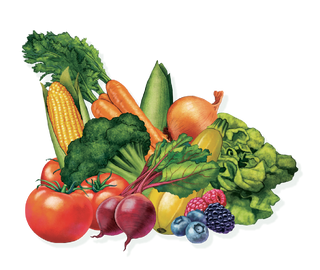Gardening Guides »
Vegetable Seeds » Yellow, White, Red, Green—Oh My!: Gurney's Guide to Onion Varieties
The onion has long been revered for its vast array of flavors and types. Its flexibility in culinary dishes across the world has endeared it to many a chef, both professional and amateur.
When trying to decide which onion from your
vegetable garden to include in your homemade dish, you have a long list of types from which you can choose. But certain onions are best with certain onion recipes.
Here's a rundown of what kinds of onions you can find, and what recipes and dishes they're used for.
Yellow Onions
Yellow onions are the most popular form of onions in the U.S., accounting for 87 percent of our onion crop. Yellow onions include all sweet onion varieties. They're yellow by name, but most yellow onions are light in color. They're often eaten raw or used in longer-cooking recipes. They're most commonly used caramelized in French onion soup, or on top of sandwiches, specifically hamburgers.
White Onions
White onions are probably the strongest-tasting onion on this list. They're typically used in Asian and Mexican dishes, as well as potato and macaroni salads. You can also sauté them, making them ideal for French onion soup or any other food in which you want to add sweet or sour flavor.
Red Onions
Red onions--also known as purple onions--have a mild to sweet flavor. They're commonly eaten raw with salads and sandwiches because of their color. They can be grilled and cooked, and, because of their low sugar and water content, make ideal companions to dishes that require long simmering or cooking times, such as chili or roasted meats.
Green Onions
Often referred to as a scallion or spring onion, green onions have a milder taste than other onions. They're harvested while their shoots are still green, hence the name. They can be eaten raw or cooked, and are usually chopped and used with sandwiches, soups, pastas, seafood, stir-fries and curries.
Remember...
Despite the fact they come in different varieties, certain onions have specific uses. Onions should not be confused with related vegetables, such as shallots and leeks. For more information on the
differences between onions, shallots and leeks, see this companion article.

